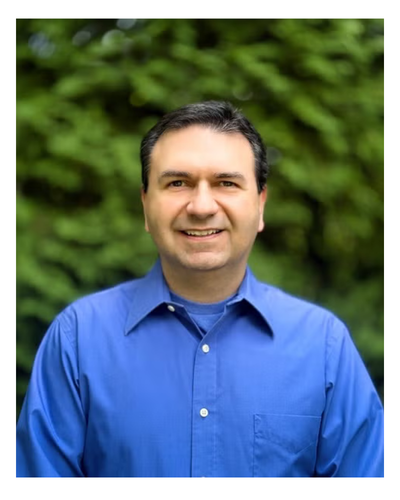
Leading with Purpose: Using Doctoral Education to Create Systemic Change through Counseling

When Direct Service Isn’t Enough—How a PhD in Counselor Education and Supervision Can Amplify Your Impact
As a seasoned clinician, you’ve probably felt the power of one-on-one counseling. Supporting clients as they grow, heal, and thrive is profoundly meaningful work. But many mid-career counselors eventually recognize a deeper call, one that reaches beyond the therapy room.
If you’ve ever wondered, “How can I impact more than one client at a time?” or thought about tackling systemic inequities you see every day in practice, you’re not alone. Many experienced professionals reach a point where they want to advocate for entire communities, shift policies, or help design better systems of care.
That pull toward broader influence often signals you’re ready for your next chapter.
The Counselor Educator as Advocate
While teaching and supervision are important roles for counselor educators, their work extends far beyond the classroom. Counselor educators often serve as the bridge between practice and policy, using their expertise to advocate for the profession (and for clients) on a larger stage.
This can take many forms:
- Professional Standards & Accreditation: Faculty influence the training of future counselors and help shape the standards that ensure rigorous, ethical, and inclusive practice across the profession.
- Community Advocacy: Counselor educators frequently contribute to policy dialogues that address mental health disparities, fight stigma, and promote social justice.
- Public Scholarship: From publishing research to presenting at conferences, counselor educators help direct attention to evidence-based practices that can inform policy and resource allocation.
- Program & Grant Development: By designing new programs and securing funding, counselor educators help institutions and agencies pilot innovative services and expand access to care to better reach marginalized or underserved communities.
- Professional Leadership: Counselor educators often rise to leadership positions in state and national counseling organizations, helping to advocate for policies that support licensure portability, best practices, and workforce sustainability.
These are some of the many ways in which a PhD in Counselor Education and Supervision is a vehicle for becoming a systemic advocate; someone who uplifts the profession and those it serves.
Pathways to Leadership & Policy Impact
With a PhD in CES, your career options multiply. If you want to expand beyond direct client service or classroom teaching, doctoral training opens the door to impactful roles, such as:
- Nonprofit Leadership: Develop or lead programs focused on community mental health, resilience, or youth empowerment.
- Policy Advisor or Consultant: Inform public policy decisions at the local, state, or national level to shape mental health practice, improve access, and facilitate more equitable outcomes.
- Department Chair or Dean: Lead academic programs that train future counselors, develop curricula, and advance inclusive teaching and learning practices.
- Professional Association Roles: Shape licensing and accreditation standards, advocate for the profession, or spearhead continuing education initiatives.
- Director of Diversity, Equity & Inclusion: Bring an equity lens to every aspect of counseling programs, ensuring culturally-responsive practices that serve diverse communities and lift up marginalized voices.
Each of these paths reflects a broader purpose: leveraging your counseling expertise to drive change on a structural level.
How a PhD in CES Equips You for Systemic Change
The power of a doctoral program lies not just in its credential, but in the competencies and networks you build along the way.
Your PhD coursework and practical experiences will prepare you to advocate skillfully and lead strategically. Common program elements include:
- Research & Evaluation Skills: Learning to design, conduct, and interpret research enables you to substantiate policy recommendations and advocate for evidence-based solutions.
- Curriculum Development & Program Design: Training in pedagogy and curriculum design equips you to build programs that reflect best practices and emerging community needs, from mental health literacy initiatives to school-based prevention models.
- Social Justice & Advocacy Frameworks: Many CES programs emphasize cultural humility, equity-centered practice, and social change, which help ground your leadership in these values.
- Collaborative Leadership & Supervision: Practicum and teaching assistantships offer hands-on opportunities to mentor diverse students, lead teams, and manage program operations.
With these tools, you can move into leadership positions feeling prepared to advocate for better policies, more inclusive practices, and lasting systems change.
Spotlight: Faculty Leading Change
At PAU, many of the faculty hold a PhD in CES and are making powerful contributions through their research and teaching; some examples include:
- Susan Branco, PhD: Dr. Branco investigates transracial and international adoption (especially Colombian adoptees), examines adoption policies, adoptee mental health, and clinical training/supervision with BIPOC counselors; she also develops models to understand adoptee awareness of structural inequality.
- Kelly Coker, PhD: Dr. Coker’s work centers on counselor education and supervision, with particular emphasis on program evaluation, accreditation, online/distance learning, and innovative clinical techniques (e.g., play in supervision), alongside substance abuse prevention and lifespan development in counseling contexts.
- Jorge Rosales Lopez, PhD: Dr. Rosales Lopez's research centers on culturally sensitive counseling for historically underserved Latinx and disabled communities, emphasizing liberation-informed, bilingual clinical practice. He also examines multicultural competence, relational cultural theory, and collaborative community engagement to influence counseling policy and training.
- Megan Speciale, PhD: Dr. Speciale explores sexual, relational, and mental health, focusing on kink/BDSM, sexual shame, sex work, and LGBTQ+ issues; she is also interested in social justice and liberatory pedagogies in counselor education.
- Shreya Vaishnav, PhD: Dr. Vaishnav investigates the impact of microaggressions on individuals with marginalized identities, exploring pathways to repair through somatic and strength‑based approaches. She also focuses on mentoring practices within academia and advocates for social justice and multicultural competencies in counselor education.
- Donya Wallace, PhD: Dr. Wallace focuses on socio‑cultural trauma and mental health among African American women, including the “Strong Black Woman” archetype. She champions culturally informed clinical training, rural mental health initiatives for underserved communities, and counseling policies through leadership within the Association of Counselor Educators and Supervisors (ACES).
These are just a few examples of the talented faculty that are ready to mentor and inspire doctoral students. To read more about them and other counseling faculty, take a look at the counseling faculty profiles. Their work underscores what’s possible when experienced counselors leverage a PhD in CES as a springboard for leadership.
Ready to Expand Your Influence?
Reflect on these questions as you consider your next chapter:
- Are you passionate about making systemic changes in mental health, education, and policy?
- Do you want to influence more than one client or one classroom at a time?
- Could doctoral education be your platform for advocacy, leadership, and innovation?
If you find yourself answering “yes,” you may be closer to readiness than you realize. Pursuing a PhD in Counselor Education and Supervision is an invitation to scale your impact by stepping into roles where you can help shape the future of counseling for years to come.
Your career has been built on compassion and skill. Now is the time to use that foundation to advocate, innovate, and lead!
About the Author
 Dr. Alex Casillas is a seasoned psychologist and educator with over two decades of experience in applied psychology, assessment, and counselor education. Currently serving as a Principal Research Psychologist in the assessment industry and an Adjunct Instructor in Applied Psychology at NYU Steinhardt, Dr. Casillas bridges research and practice to enhance counselor training and educational equity. His academic journey includes a Ph.D. from the University of Iowa and a B.A. from Grinnell College. He is originally from Mexico and a fierce advocate of inclusion, belonging, and equity. Through his work, Dr. Casillas emphasizes the importance of culturally responsive practices and empirically-informed strategies in counselor education.
Dr. Alex Casillas is a seasoned psychologist and educator with over two decades of experience in applied psychology, assessment, and counselor education. Currently serving as a Principal Research Psychologist in the assessment industry and an Adjunct Instructor in Applied Psychology at NYU Steinhardt, Dr. Casillas bridges research and practice to enhance counselor training and educational equity. His academic journey includes a Ph.D. from the University of Iowa and a B.A. from Grinnell College. He is originally from Mexico and a fierce advocate of inclusion, belonging, and equity. Through his work, Dr. Casillas emphasizes the importance of culturally responsive practices and empirically-informed strategies in counselor education.
